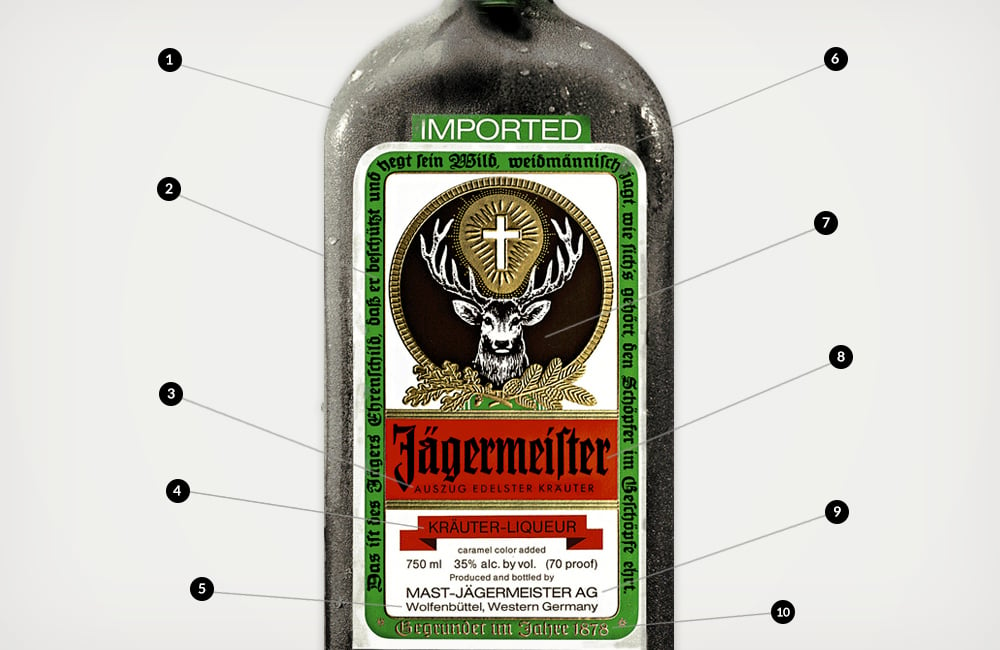You might only know Jägermeister as the alcohol you drop in a glass of Red Bull when you’re out for the night in college, but the herbal digestif actually has a long and storied history. In fact, a lot of the Jägermeister tale is displayed right on the label. Here is a breakdown of what it all means. Photo Source
1. Deer Blood: Despite popular legend, Jägermeister does not contain deer blood
2. Words around label: This is a verse from the poem “Weidmannsheil” (“Hunter’s Salute”) by Oskar von Riesenthal. Riesenthal was a forester and poet in the 1800s. Translated, it roughly reads: It is the hunter’s honor that he Protects and preserves his game. Hunts sportsmanlike, honors the Creator in His creatures.
3. Auszug Edelster Krauter: Extract of the finest herbs
4. Kräuter-Liqueur: Herbal Liqueur
5. Wolfenbüttel: Location of the headquarters of the company. Wolfenbüttel is in Lower Saxony which is in the northwestern part of Germany.
6. Bottle Design: Curt Mast tested hundreds of different bottle designs for his herbal liquor by dropping each from a great height onto an oak floor. The bottle chosen was the one that remained intact.
7. Cross & Stag Head: In honor of Saint Hubertus (patron saints of hunters). The story goes that he saw a vision of a glowing cross between a stag’s antlers before converting to Christianity. It’s also possibly a nod to Saint Eustace who is said to have seen the same vision.
8. Jägermeister: Jägermeisters were gamekeepers and hunting officials in Germany. The term “Jägermeister” means “master hunter.”
9. Mast-Jägermeister AG: Company that produces Jägermeister. The company was originally founded by Wilhelm Mast in 1878 as a wine-vinegar business. Curt Mast, Wilhelm’s son, was the original distiller of Jägermeister.
10. Gegrundet im Jahre 1878: Founded in 1878




